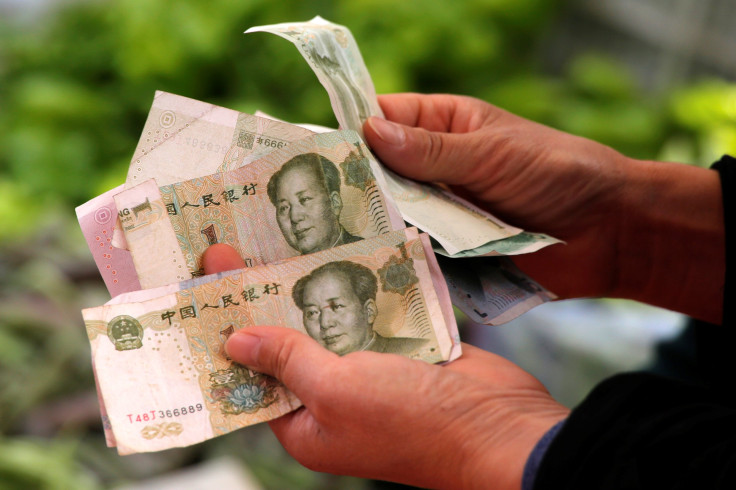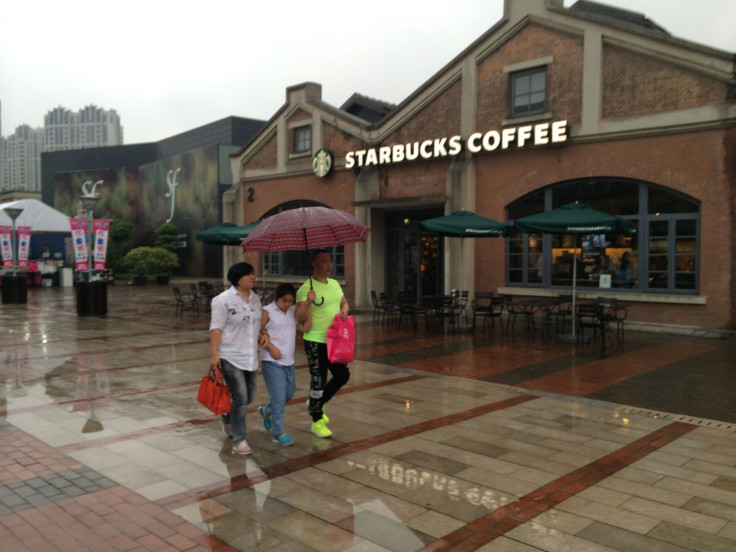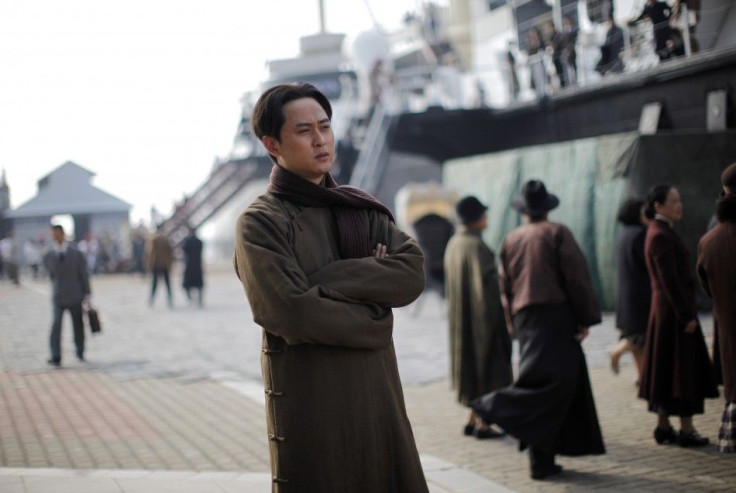50 Years On, Chinese President Xi Prefers To Bury Warning Lessons Of The Cultural Revolution

SHANGHAI — On this day 50 years ago … nothing happened. That’s the message from China’s official propaganda machine, as the country marks — or willfully ignores — half a century since the beginning of the Great Proletarian Cultural Revolution (1966-76), one of the most destructive political movements of the 20th century, which led to the deaths of at least 1.5 million people, and the arrest, persecution and humiliation of many more — including some of the country’s top leaders and most famous intellectuals.
Mainstream media did not mention the 50th anniversary of the May 16, 1966, directive, in which Chairman Mao Zedong called for a struggle against “counter-revolutionary” and "bourgeois" enemies, unleashing the violence of teenage Red Guards against teachers and intellectuals, and later leading to worker uprisings and, effectively, military dictatorship. The Global Times quoted one foreign news agency report on the topic, about people collecting Maoist memorabilia – possibly as an oblique way of breaking the taboo. But most posts on the subject were quickly blocked on social media.
It’s a reminder of the continuing sensitivity of the topic – 35 years after then-leader Deng Xiaoping presided over an official resolution on the Cultural Revolution, dubbing it the cause of “disaster and turmoil,” and the heaviest setback the party, nation and people had suffered in the Communist era. And some observers say the topic is all the more awkward for current party leader and President Xi Jinping, who has sought inspiration and legitimacy in the ideas and methods of Mao.
Despite that 1981 verdict, the party never has welcomed debate on the subject. While it put some of the blame on Mao, the aging revolutionary leader who Western historians say unleashed the teenage Red Guards to revive his own previously flagging power, the official verdict concluded that over the course of his life he had been more right than wrong. To do otherwise would have undermined the legitimacy of the People's Republic, the state Mao founded in 1949 after more than two decades of revolutionary struggle. Much of the blame was pinned on his wife, Jiang Qing, who took on a leading role as Mao’s health faded — and her three closest advisers. Collectively known as the Gang of Four, they were tried and later imprisoned for their role in the chaos.
Some books and films — especially in the 1980s and '90s — did address the fallout of the Cultural Revolution, which saw homes, historic and religious sites ransacked, children turned against parents and some 16 million young people sent to the countryside for years to "learn from the peasants." And in the past decade some of China’s more liberal media have occasionally published stories, including those of Red Guards apologizing for the suffering they caused.
A few years ago, a commentary in the official China Daily blamed the Cultural Revolution, and the destruction of traditional culture and values it wrought, for resulting in lax morals in contemporary China as people were unleashed to pursue wealth in recent decades.
Yet such soul-searching has been relatively rare, and China’s education system does not encourage debate about the topic. One of the country’s few remaining cemeteries for those who died in factional Red Guard battles, in the western city of Chongqing, is out of bounds to the public.
And in recent years, official reverence of Mao has if anything increased: His image is on all China’s banknotes now. And it’s a process some say has accelerated under Xi, who has stepped up praise for Mao, and at the same time increased controls on media and internet, since taking office three years ago.

The result is that despite the suffering caused to millions of families by the denunciations, public humiliations, beatings and executions, an increasing number of young people know very little about the detail of what happened. Liberal journalist Hu Shuli, founder of Caixin magazine, has described this as "collective amnesia."
One Chinese news outlet — the popular website iFeng, a Beijing-based offshoot of Hong Kong-founded Phoenix TV — did break the taboo Monday by publishing the results of interviews with young people about the Cultural Revolution. The article, quickly blocked on Chinese servers, quoted some students who said they didn’t know what had happened, and others who said they admired the fervor of the students, praised the Cultural Revolution for "removing corrupt officials," or said they would probably have joined in with the denunciations if they had been alive at the time because they themselves were “passionate young people.” Such ignorance showed the need for more education, the article concluded.
Even in Shanghai, which saw some of the most extreme action of the Cultural Revolution, including the ransacking of homes of some of the city’s pre-revolutionary middle class and intellectuals, and pitched battles between radical worker activists and the city’s old party leadership, a lack of knowledge about the era is not uncommon.
One of the epicenters of the Cultural Revolution in the city was the former No. 17 Cotton Mill, a huge textile factory built in the 1920s and later nationalized. It was here that a lowly security guard and former soldier, Wang Hongwen, rose from obscurity by writing inflammatory slogans denouncing the leaders of the factory, and of the city government, as Mao had encouraged. His impeccable proletarian background and radical fervor soon propelled him all the way to Beijing , as a member of the notorious Gang of Four faction, and a vice chairman of the Communist Party until his arrest in 1976, after Mao's death.
Like much of Shanghai’s traditional industry, the No. 17 Cotton Mill closed down more than a decade ago. It’s since been converted into a shopping and leisure zone, its former workshops and warehouses now home to discount outlets for luxury fashion brands, Adidas, Levi's and Nike stores and branches of the Gap, Esprit, Toys R’Us and Starbucks. There’s a climbing area for children and an Austrian-owned luxury chocolate factory with a popular visitor center.
History is hazy to most of the staff here. “I know it was the ‘No. 17 factory,’” said one sales assistant, taking a break from promoting her Armani and Prada products, “but I’m not sure what it made. Our generation are not so sure about the history. Maybe my parents’ generation would know.”
Another woman had heard “there was some link to the Cultural Revolution,” she said, “but I’m not too sure what.”
“Yes,” said another, “our generation don’t know much about this kind of thing – and our parents don’t talk about it.”
In the nearby streets, one older local resident was only too aware of the past.

“Wang Hongwen, the head of the rebel faction, he used to live just over there,” he said, gesticulating. “And his wife lived nearby for a while after he was put in prison.” But he didn’t know what had happened to her after that, he added. And though he himself had suffered, having been "sent down" to work in the countryside for 10 years, it was all in the past now.
“Now we’ve reformed, we just focus on the economy – if we do that, we’ll be OK,” he said. “We’re the second-biggest economy in the world. We couldn’t possibly do those kind of brainless things again.”
Some experts say the pain of the past may be one reason some older people don’t want to burden the younger generation with stories of what they went through in the Cultural Revolution. Yet continuing political anxiety may be another reason — as Xi Jinping continues to demonstrate that criticism of the Communist Party should be discouraged. Not only has he introduced strict disciplinary rules with punishments for party members who question or “slander” the party in public, he has also emphasized the need for a unified vision of history.
“In 2012, Xi Jinping made it very clear that looking at party history critically is tantamount to ‘historical nihilism’ [an unacceptable attitude in the traditional communist lexicon], and that has sent a very stark message to historians who work on party history, so the field has really gone very quiet,” says Frank Dikotter, professor of humanities at the University of Hong Kong and author of a new book, “The Cultural Revolution: A People's History, 1962- 1976.”
Indeed some see Xi as having borrowed from Mao’s tactics in a number of ways — notably in the way he has promoted his own personality. Besides getting constant top billing in China’s media, he has allowed cartoon images to be promoted of himself fighting corruption, using the same vocabulary Mao used in a cleanup campaign soon after the 1949 revolution. He also has an officially sanctioned nickname – Xi Dada or "Big Daddy Xi" – designed to enhance his populist credentials, as well as books of his quotations — recalling Mao's famous Little Red Book — published in Chinese and English, while apps, websites and research centers have been set up to study his thought. The Tibetan delegation to China’s parliament even appeared at its annual session in March wearing badges with Xi’s image — the first time in decades images of a leader have been presented this way .
All this has set alarm bells ringing for some, as have Xi’s revival of speeches by Mao, and tributes to hardline documents rarely mentioned in recent years, such as Mao’s famous 1940's speech on how art should serve socialism. He has also referred more to Marxism — and recently to the importance of promoting atheism, in a nation with a growing number of religious believers — than did his predecessors Hu Jintao and and Jiang Zemin. And Xi has attacked Western values and ideas, and their influence on sectors from education to the internet.

The trend has disappointed many who initially hoped that Xi, relatively young for a Chinese leader, and the son of one of the earliest post-Cultural Revolution economic reformers, Gen. Xi Zhongxun, would be a modernizer. In a nation where many have moved far away from ideology to focus on modern lifestyles, and have become used to a relatively open environment since the advent of the internet, Xi's experience in some of China’s most economically open areas, like the coastal provinces of Zhejiang and Fujian, prompted hope of further economic, political and ideological progress.
But Willy Lam, adjunct professor of politics at the Chinese University of Hong Kong and author of a book on Xi, says the president made it clear early on that he believed a diversifying society made respect for the party’s past all the more important.
“Very soon after he came to power, Xi made a speech about the lessons of the collapse of the Soviet Union,” Lam says. “And he said that one reason for this was the fact that it had lost its legitimacy, that younger leaders like Gorbachev had attacked Lenin and Stalin. So he made it clear that if the party criticized its founding fathers too much, its legitimacy would be threatened.”
While Xi's motives may be mostly utilitarian, Lam says there are ideological reasons for the revival of Maoist values too. Even though Xi’s own father was punished and humiliated in the Cultural Revolution, and Xi, then a teenager, sent to work with farmers in rural Shaanxi province, Lam says that era appears to have left a strong impression on China’s current leader.
“Of course it was traumatic,” he says, “but Xi and people of his generation also imbibed Mao’s ideology in a relatively uncritical way. Xi talks about Mao a lot. This year the People’s Daily even published an old article by Mao on how to run the Communist Party.”
As well as presiding over a tough anti-corruption campaign, which has won him popular support, Xi has sought to promote a more sober morality, with disciplinary rules ordering officials to abandon the culture of excess. He has also worked to roll back the diversification of society in the past two decades, presiding over a crackdown on civil society, including lawyers, NGO activists, workers’ advocates and feminists, as well as journalists and bloggers. Such individuals have been paraded on Chinese television confessing to apparent crimes — though they have not all been charged — or seen their characters attacked in state media in a way some observers say reminds them uncomfortably of the Cultural Revolution.

Author Frank Dikotter says this tough line is another legacy of the Cultural Revolution and other mass movements.
“From the point of view of the regime, the mistake was to allow the people to speak up and criticize the party,” he said. “You had people protesting outside government offices in summer 1966. And people like Deng Xiaoping [who was purged in the Cultural Revolution, but later presided over the Tiananmen crackdown in 1989] or Xi Jinping saw this as the result of allowing ordinary people to disrupt the normal functioning of the one-party state. The view is that giving a voice to ordinary people, whether unemployed miners, or unhappy students, people in the countryside, is equal to chaos, and that’s the last thing you want.”
Ironically, Dikotter says, the chaos of the Cultural Revolution did, in its later years, allow some people to begin experimenting with “undermining the planned economy” by undertaking private farming or starting black market businesses, something eventually formalized by Deng in the late 1970s, marking the start of China’s economic reforms. It lies at the root, he says, of China’s hybrid system today, a blend of economic openness and political control.
“That is the core legacy of the Cultural Revolution: This odd juxtaposition, that people can thrive a little bit with basic economic freedoms, yet at the same time this extraordinary fear of chaos has led the party to constantly repress people’s political aspirations.”
In practical terms China is a very different country today, and despite his tough political line, Xi has insisted he wants to continue economic reform, encouraging innovation and the scrutiny of public officials, in order to encourage clean government. At the same time, Xi has demanded a “healthy” and “positive” internet, and, in a recent speech, warned that “cliques" and "conspirators” in the Communist Party would be “eliminated,” phrases that critics said echoed language used during the factional infighting of the Cultural Revolution. Many experts say such warnings will hardly encourage the type of public debate and bold thinking officials say is vital for China to thrive in the modern global economy.
“This pressure discourages debate,” says Dikotter. “If you are a lawyer, an NGO, a historian, you fear the consequences of carrying on with your work in a critical manner. I think in the cities in particular, the gap between having some economic freedoms and not being able to Google something is exasperating ordinary people.”
Lam says there are “signs of pushback” from within China’s system, in the form of occasional articles defending press freedom, yet Xi’s power is greater than that of his immediate predecessors, and therefore such critics remain cautious.
Some observers also see Xi’s hard line as having emboldened leftists who had previously been marginalized, possibly leading to a tougher line on dissent at the local level than the center may have envisaged. One group even organized a concert, in which songs from the Cultural Revolution era were sung, at the Great Hall of the People in Tiananmen Square earlier this month. Ma Xiaoli, the daughter of one communist veteran, went online to warn of a return to the Cultural Revolution. The venue later said it had been misled into thinking the concert had official backing and was unaware of its content, but this prompted an angry retort from one of the event’s organizers, who complained about “demonization of China’s Cultural Revolution.”
“Any such denunciation of the Cultural Revolution,” he said, “is entirely making public opinion preparations for the United States and other Western nations in [plotting the] extinction of the Chinese nation!”
Such language, observers noted, was worthy of the Cultural Revolution itself. Half a century on, the scars and battles of that traumatic era still lie buried, unresolved.
© Copyright IBTimes 2025. All rights reserved.






















